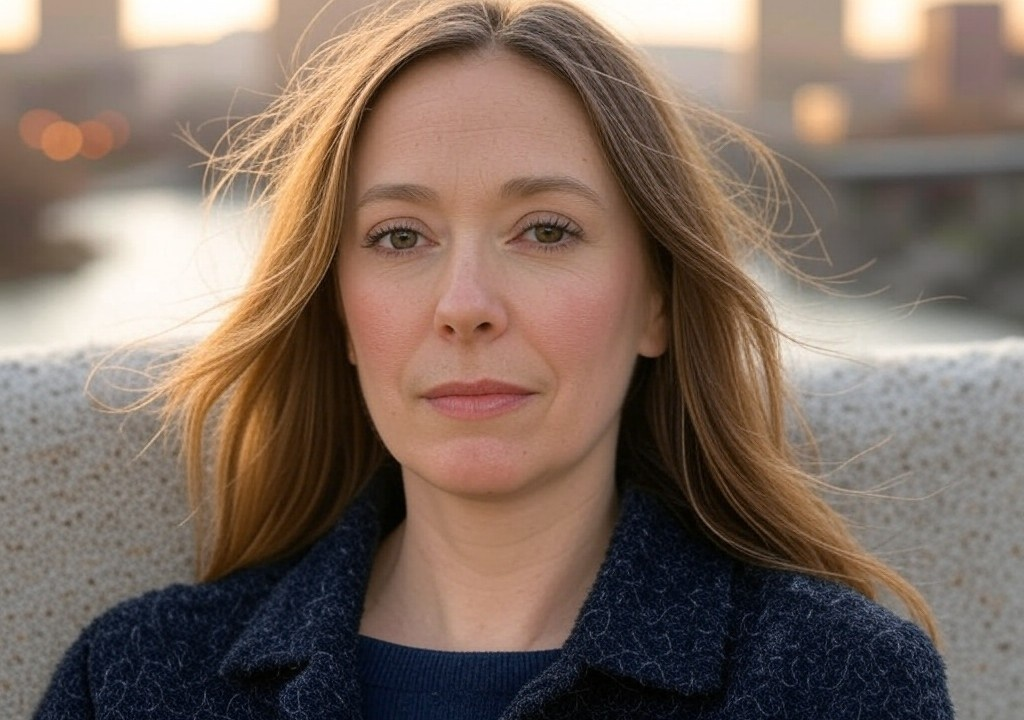Let me paint a picture for you: It’s February in Boise—the kind of cold that turns your breath into little clouds of angst—and I’m sitting in the corner of a used bookstore, clutching a book with a fluorescent green cover. I wasn’t looking for it; in fact, I was actually looking for a more socially acceptable impulse buy, like the latest best-selling thriller or maybe a cookbook with a title like Farm to Table: Potatoes Reimagined. But instead, I found this: How to Be an Adult in Relationships by David Richo.
I had stumbled into that bookstore because that morning, like an unhinged rom-com heroine, I ended a six-month relationship that wasn’t so much a relationship as it was a series of mutual misunderstandings punctuated by brunch. I was tired—tired of hurting other people, tired of the self-sabotage, tired of wondering if it was me or if everyone just secretly sucked. And so, without realizing it, I reached for guidance. Turns out, it came wrapped in lime green.
What followed wasn’t love at first sight—Richo’s book isn’t that kind of page-turner. But it did change my life. Let me tell you how.
Why This Book Hit Different
I’ve always loved books, and over the years, they’ve been my sounding board, compass, and occasional therapist. I mean, sure, I could probably learn a few things from friends or a professional therapist, but there’s something about eyeing a sentence in print and thinking, “Oh no, they’re onto me.” That’s exactly what How to Be an Adult in Relationships did.
Richo crafts his advice around five core principles for healthy love: attention, acceptance, appreciation, affection, and allowing. (Yes, they suspiciously all begin with “A,” which I guess is peak therapist energy.) The book divides relationships into two broad categories: “stuff you can’t control” and “stuff you definitely can.” Spoiler alert: we spend way too much time agonizing over the first category while conveniently dodging the second. The way Richo wrote about the things I was in control of—how I showed up, what I aimed to offer to others, and more importantly, what I refused to compromise for—felt like he’d poked his head into my journal and added emotionally literate Post-It notes to all my worst tendencies.
Most importantly, though, the book taught me this: being “good at” relationships isn’t about being perfect or even about being liked all the time. It’s about being whole—knowing who you are, what you need, and what you’re willing to work toward.
Lessons We Can All Steal (You're Welcome)
Now, before I go further, let me clarify: this isn’t an ad disguised as self-help gospel. If you’re allergic to spiritual language and discussions of “letting go,” some sections of Richo’s book might make your eyes roll as dramatically as a teenager denied Wi-Fi. But buried in there are nuggets of truth and practical insights that even the most stubborn skeptic can appreciate. Here are a few lessons that stuck with me—and if you’re wise, might just stick with you too:
1. Your Partner Isn’t the Main Course (They’re the Side Dish).
Richo describes healthy relationships as interdependent, not codependent. That means two fully realized people walking together—not two people fused into an awkward love blob. Your “wholeness” is your own responsibility; expecting someone else to make you happy isn’t just unfair, it’s exhausting. Reminder to self: Take up kickboxing before projecting insecurities again.
2. The Power of the Phrase “This Is My Experience.”
This tiny sentence has saved me from at least three fights and one awkward Thanksgiving. Richo suggests owning your feelings instead of blaming others for them, a tactic that, if executed with a non-sarcastic tone, instantly turns down the emotional temperature of tense conversations. Imagine telling a partner, “Hey, this is my experience, and I want to share it,” rather than “You make me feel like garbage!” Utter magic, I promise.
3. Boundaries, Baby.
I always thought of boundaries as some rigid set of rules people bark out—like an emotional HOA agreement. But Richo reframes them as a way to teach others how to love you. Problem: I was so terrified of conflict that I’d let people trample over my needs, thinking that made me chill or easy-going. (Spoiler: it made me resentful and, uh, not chill.) Setting boundaries doesn’t mean you’re unkind; it means you recognize your own value. That’s 10 times hotter than playing nice.
4. Let Yourself Be Loved.
Oof, this was a hard one. Richo talks about how some of us are so scared of getting hurt that we resist genuine affection like someone just offered us kale chips at a Fourth of July cookout. But letting people in requires a kind of surrender, a faith that even if it ends in heartbreak, it’s worth the risk. I’d been armored up for so long I didn’t realize I was blocking the very thing I craved. Slowly, I dared to take off the armor—bit by vulnerable bit.
What Changed for Me (And Why It’s Not What You Expect)
I wish I could say I closed that book, threw on a power outfit, and strutted into my Next Great Romance. That’s not how life works, or at least not mine. Instead, Richo’s words quietly settled into the nooks and crannies of my daily life. I started noticing the ways I’d hide myself in conversations with friends. I stopped apologizing for asking for space or crying when I felt overwhelmed. And I began seeing this big, messy process of connecting with others not as something to master, but as something to enjoy—even when it’s messy.
The most surprising change? I started spending real quality time with the person I’d been avoiding all along: me. I know, I know—it sounds ludicrously self-indulgent, like writing your name in calligraphy on a piece of cake and eating it in the bath. But this wasn’t about pampering (although I do recommend splurging occasionally). This was about getting interested in my own thoughts, my own emotions, and my own dreams without needing immediate validation from someone else. Slowly, I began to see my past relationships more clearly—not as failures, but as vibrant, tangled lessons.
And oh boy, y’all, was I learning.
It’s Not About Being Perfect. It’s About Being Brave.
Books don’t fix you. Richo wouldn’t want you to think they do, and neither do I. But sometimes, they meet you at a crossroads, point down a path, and say, “Bet you didn’t notice this option before.” And when the road is steep, they whisper: “Keep going.”
I still have weeks when I worry I’m getting it wrong—when I send a weirdly wordy text or overthink why someone didn’t wave back at me on the greenbelt. But Richo’s book gave me the confidence to trust even the messy parts of this whole connection thing. Every misstep is just another chance to reflect, adjust, and keep loving as well as I can.
So if you ask me how this lime green book changed my life, I’ll tell you this: It didn’t teach me what love is. It taught me what love isn’t—and gave me the courage to begin figuring out the rest for myself. And honestly? That’s more than enough.




















